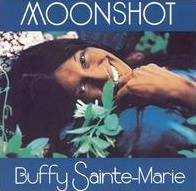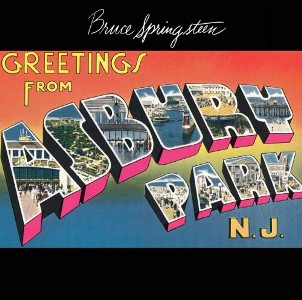
Greetings from Asbury Park, N.J. is the debut studio album by the American singer-songwriter Bruce Springsteen. It was produced from June through October 1972 by Mike Appel and Jim Cretecos at the budget-priced 914 Sound Studios. The album was released January 5, 1973, by Columbia Records to average sales but a positive critical reception.

For Everyman is the second album by American singer-songwriter Jackson Browne, released in 1973. The album peaked at number 43 on the Billboard 200 chart and the single "Redneck Friend" reached number 85 on the Billboard Hot 100 chart. In 2012, the album was ranked number 450 on Rolling Stone magazine's list of The 500 Greatest Albums of All Time.
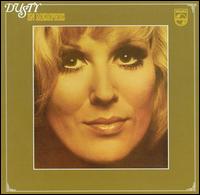
Dusty in Memphis is the fifth studio album by English singer Dusty Springfield, released on 31 March 1969 in the United States by Atlantic Records and by Philips Records internationally. Springfield worked on the album with a team of musicians and producers that included Jerry Wexler, Arif Mardin, Tom Dowd, conductor Gene Orloff, backing vocalists the Sweet Inspirations, bassist Tommy Cogbill, and guitarist Reggie Young. Initial sessions were recorded at American Sound Studio in Memphis, while Springfield's final vocals and the album's orchestral parts were recorded at Atlantic Records' New York City studios.

Music of My Mind is the fourteenth studio album by American singer, songwriter, and musician Stevie Wonder. It was released on March 3, 1972, by Tamla Records, and was Wonder's first to be recorded under a new contract with Motown that allowed him full artistic control over his music. For the album, Wonder recruited electronic music pioneers Malcolm Cecil and Robert Margouleff as associate producers, employing their custom TONTO synthesizer on several tracks. The album hit No. 21 in the Billboard LP charts, and critics found it representative of Wonder's artistic growth. It is generally considered by modern critics to be the first album of Wonder's "classic period".
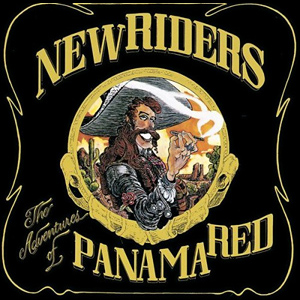
The Adventures of Panama Red is the fourth country rock album by the New Riders of the Purple Sage, released in 1973. It is widely regarded as one of the group's best efforts, and reached number 55 on the Billboard charts.
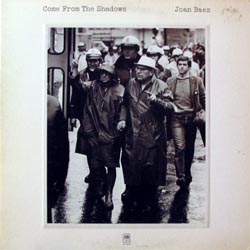
Come from the Shadows is the thirteenth studio album by Joan Baez, released in 1972. After recording for the independent label Vanguard for more than a decade, Baez signed with A&M and attempted to point her career in a slightly more "commercial" direction. In addition to her own compositions such as "Prison Trilogy","Love Song to a Stranger", "Myths", and "To Bobby", Baez included John Lennon's "Imagine", Anna Marly's "Song of the Partisan", and Mimi Fariña's "In the Quiet Morning ".

Radio Ethiopia is the second studio album by American musician Patti Smith, and her first album credited to Patti Smith Group. The album was released in October 1976 through Arista Records.

No Secrets is the third studio album by American singer-songwriter Carly Simon, released by Elektra Records on November 28, 1972.

Hotcakes is the fourth studio album by American singer-songwriter Carly Simon, released by Elektra Records, on January 11, 1974. Featuring the major hits "Haven't Got Time for the Pain" and "Mockingbird", the latter a duet with her then-husband James Taylor, Hotcakes became one of Simon's biggest selling albums. Her first concept album, the autobiographical songs portray Simon happily married and beginning a family.

Boys in the Trees is the seventh studio album by American singer-songwriter Carly Simon, released by Elektra Records in April 1978.

In Concert is a live album by Janis Joplin. It was released in 1972, after Joplin's death, as a double-LP record. The first record contains performances with Big Brother and the Holding Company and the second with the Full Tilt Boogie Band, recorded at various locations in 1968 and 1970. The album lacks any live recordings with her first solo effort with the Kozmic Blues band though songs that had been produced with that band were performed in the recordings of the Full Tilt Boogie Band. The photographs used for the gatefold album were taken by photographer David Gahr in New York City in 1969 and 1970.

Little Wheel Spin and Spin is the third album by Buffy Sainte-Marie, released in 1966. It was her only album to reach the Top 100 of the Billboard 200. Its most famous song is "My Country 'Tis of Thy People You're Dying," which displayed a native perspective on the colonisation of North America.

She Used to Wanna Be a Ballerina is the seventh album by Buffy Sainte-Marie, released in 1971.
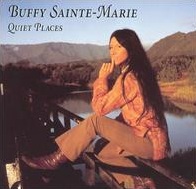
Quiet Places is Buffy Sainte-Marie's ninth album and her last for Vanguard Records, with whom she had had a very strained relationship ever since the financial disaster of the experimental Illuminations. In fact, her next album, Buffy, had already been recorded before Quiet Places was actually released and was not to find a label for many months after she had completely broken with Vanguard.

Buffy is the tenth album by Buffy Sainte-Marie and her first after she and Vanguard Records parted ways, with whom her relationship had not been on the best of terms for several years.
"Mister Can't You See" is a song written by Mickey Newbury and Townes Van Zandt that first appeared on Newbury's 1968 debut album Harlequin Melodies. Newbury's original version was slow and dominated by strings and a very simple drumbeat, with his voice telling a tale of nature's power and beauty. The actual title of the song comes from the line "can't you see the river flowing".
"Cod'ine" is a contemporary folk song by the singer-songwriter Buffy Sainte-Marie. Considered one of the earliest anti-drug songs, Sainte-Marie wrote the piece after becoming addicted to codeine which she had been given for a bronchial infection. She recorded it for her debut album, It's My Way! (1964).

Introducing the Eleventh House with Larry Coryell is the debut album by The Eleventh House, released in 1974 by Vanguard Records.
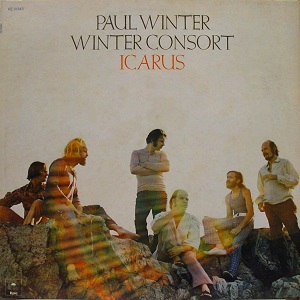
Icarus is the fourth album by American musical group Paul Winter Consort. It was recorded in 1971 for the Epic Records label and released in 1972. It was re-released by Epic in 1978 and by Living Music in 1984. The album was produced by George Martin.
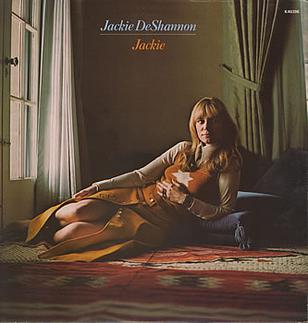
Jackie is an album by American pop singer and songwriter Jackie DeShannon, released in 1972 by Atlantic Records. It was recorded in Memphis with producers Jerry Wexler, Tom Dowd and Arif Mardin.
